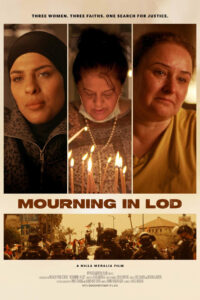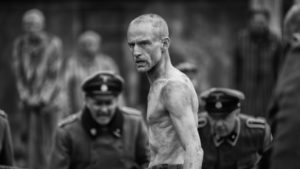After the Revolution, written by acclaimed playwright Amy Herzog, is a powerful exploration of family, legacy, and political ideals. This thought-provoking drama, directed by Susanna Frazer, dives into the challenges of reconciling a revered family history with unsettling truths. Set against a backdrop of post-Cold War America, Herzog’s play examines what happens when lifelong beliefs collide with new revelations.
The Storyline
After the Revolution centers on Emma Joseph, a recent law school graduate who has dedicated her career to fighting for social justice. She’s the latest in a long line of passionate, politically active family members, whose beliefs and values she’s inherited with pride. Emma’s grandfather, Joe Joseph, is a celebrated figure in her family for his commitment to progressive causes and for his supposed integrity during the McCarthy era. But when Emma learns a startling secret about her grandfather’s past, she’s forced to confront a difficult question: Can she still uphold the family’s legacy and the ideals she’s spent her life fighting for?
A Play About Ideals, Identity, and Moral Complexity
Herzog’s play is a nuanced portrayal of a family entangled in generational political values and the personal implications of hero worship. Through Emma’s journey, After the Revolution explores what it means to inherit not only values but also the flaws and secrets of one’s predecessors. Herzog doesn’t shy away from depicting the complexities and conflicts that arise when our heroes turn out to be fallible, asking us to consider if ideals can stand the test of truth.
The narrative is laced with wit, genuine emotional depth, and a raw honesty that resonates with audiences who have ever grappled with the weight of family expectations. Herzog’s characters are drawn with empathy and realism, from Emma’s passionate yet shaken resolve to her family members, each wrestling with their own interpretations of loyalty and legacy.
Themes of Legacy and Responsibility
After the Revolution raises timeless questions: How do we define ourselves within the context of family and history? Can we remain loyal to the values of our ancestors while acknowledging their mistakes? Emma’s struggle speaks to anyone who has ever had to navigate the often turbulent waters of family legacy and self-identity. Herzog’s exploration of these themes feels especially relevant in today’s polarized world, where individuals often find themselves grappling with how personal values intersect with those of their family and community.
The play also touches on intergenerational trauma and the ongoing impact of past political ideologies on modern lives. As Emma’s confidence is shaken, she embarks on a journey not only to understand her family but also to forge her own path—a journey many young adults find relatable as they question long-held beliefs and strive to create identities independent of family influences.
Why After the Revolution Is Worth Seeing
Directed by Susanna Frazer, this production brings Herzog’s vision to life, highlighting the delicate balance between personal conviction and the messy reality of human flaws. Frazer’s direction emphasizes the intimate, often unspoken conflicts within family dynamics, offering audiences a close look at how political ideals become deeply personal.
After the Revolution is an engaging, thought-provoking play that will appeal to anyone interested in exploring the intersections of family, politics, and personal growth. With its richly drawn characters, heartfelt dialogue, and complex themes, Herzog’s work encourages us to reflect on our own values, our relationship to history, and the stories we inherit. It’s a timely reminder that while ideals may guide us, understanding and compassion are what ultimately shape our connections with others.
Final Thoughts
In After the Revolution, Herzog challenges us to embrace the discomfort of moral ambiguity and to find strength in confronting difficult truths. The play reminds us that true revolution often begins within, in the spaces where we question, reflect, and choose who we want to become.
If you’re seeking a theater experience that combines powerful storytelling with a deep dive into questions of heritage and self-identity, After the Revolution is a must-see.




